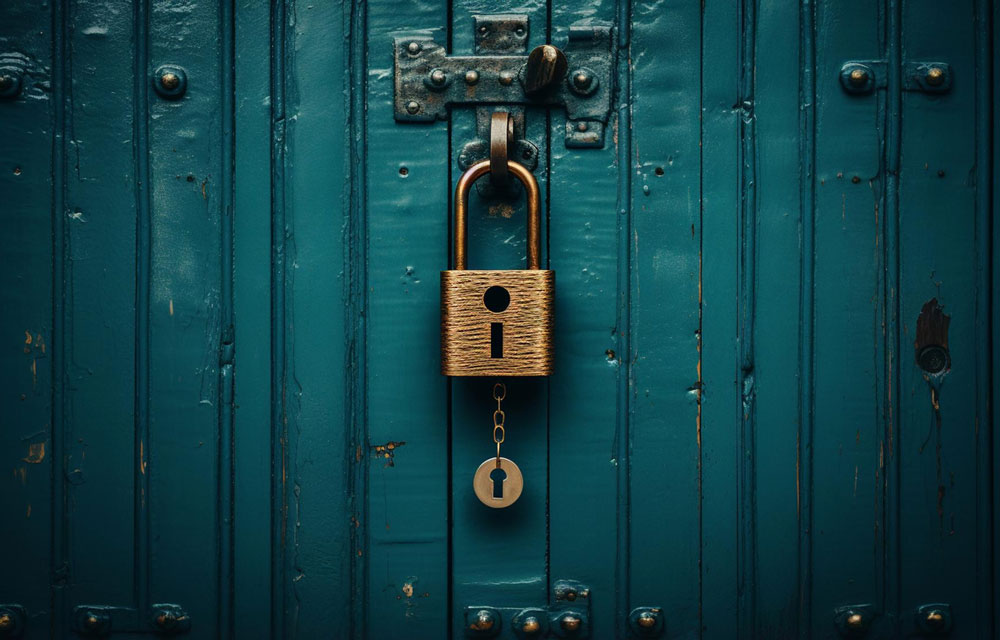The importance of password protection and data security
Why is it important to protect your password? We all ask it sometimes, right? Well, keeping your passwords safe is super important. That’s because there are more and more cyber threats and times when bad people get access to our personal stuff. So, it’s really necessary to protect our private info and important data. Passwords are like the first wall of defense against these bad guys. That’s why it’s really important to use passwords the right way. In this article, we’ll talk about ten things people often do wrong with their passwords and how to do them better to keep your online life safe.
Common bad habits that compromise password protection
- Using weak passwords: One of the most common bad habits is using weak passwords that are easily guessable. Passwords like “123456” or “password” are a hacker’s dream. Instead, opt for complex passwords that include a combination of uppercase and lowercase letters, numbers, and special characters. This makes it much harder for hackers to crack your password.
- Password reuse: Another common bad habit is reusing passwords across multiple accounts. While it may be convenient to have the same password for all your accounts, it also means that if one account is compromised, all your other accounts are at risk. It is crucial to use unique passwords for each account to minimize the impact of a potential breach.
- Sharing passwords: Sharing passwords with others, even with trusted individuals, is a risky practice. You never know when someone might accidentally or intentionally misuse your password. It is best to keep your passwords confidential and avoid sharing them with anyone.
Using strong and unique passwords
- Length matters: When it comes to passwords, longer is always better. Longer passwords are much harder to crack than shorter ones. Aim for passwords that are at least 12 characters long to ensure maximum security.
- Passphrase over password: Instead of using a single word as your password, consider using a passphrase. A passphrase is a series of words that are easy for you to remember but difficult for others to guess. For example, “Ilove2Travel@2021” is a strong passphrase that combines personal interest, numbers, and special characters.
- Password manager: With the increasing number of online accounts we have to manage, it can be challenging to remember all our passwords. This is where password managers come in handy. These tools securely store and generate complex passwords for all your accounts, allowing you to have strong and unique passwords without the hassle of remembering them all.
Implementing two-factor authentication for added security
- Two-factor authentication (2FA): Two-factor authentication adds an extra layer of security to your accounts by requiring a second form of verification, usually through a text message or an authentication app. Enable 2FA whenever possible, as it significantly reduces the risk of unauthorized access even if your password is compromised.
- Biometric authentication: Many devices and services now offer biometric authentication options, such as fingerprint or facial recognition. These methods are more secure than traditional passwords as they rely on unique physical characteristics that are difficult to replicate and are best for password protection.
Avoiding password reuse and password sharing
- Unique passwords for each account: As mentioned earlier, using the same password for multiple accounts puts all your accounts at risk. If one account is breached, hackers can gain access to all your other accounts. By using unique passwords for each account, you limit the potential damage of a breach.
- Avoid sharing passwords with others: Sharing passwords, even with trusted individuals, exposes your accounts to unnecessary risk. It is always best to keep your passwords to yourself and avoid sharing them with anyone, no matter how close you may be.
The dangers of using easily guessable passwords
Picking easy-to-guess passwords is a big danger for your password protection. Bad guys use smart computer tricks to break simple passwords and sneak into your accounts, getting hold of your personal stuff. Let’s talk about some common mistakes to steer clear of:
- Dictionary words: Avoid using dictionary words as your passwords, as these can be easily guessed. Hackers have access to vast databases of commonly used words, making it easy for them to crack passwords that consist of dictionary words.
- Personal information: Avoid using personal information such as your name, birth date, or address in your passwords. Hackers can easily obtain this information through various means and use it to guess your password.
- Sequential or repetitive characters: Using sequential or repetitive characters, such as “12345” or “aaaaa,” is highly insecure. These patterns are easily identifiable and can be quickly cracked by password-cracking tools.
The importance of regularly updating passwords
Regularly updating your passwords is an essential practice for maintaining good password hygiene. Here’s why:
- Data breaches: Data breaches occur frequently, and your accounts may be compromised without your knowledge. By regularly updating your passwords, you reduce the likelihood of unauthorized access to your accounts.
- Staying ahead of hackers: As technology advances, so do hacking techniques. By regularly updating your passwords, you stay one step ahead of hackers who may be using outdated methods to crack passwords.
- Password security improvements: Online services and platforms are continually enhancing their security measures. By updating your passwords regularly, you can take advantage of these improvements and ensure the highest level of protection for your accounts.
Protecting passwords from phishing attacks
Phishing attacks are a common method used by hackers to trick users into revealing their passwords. Here are some tips to protect your passwords from phishing attacks:
- Verify the source: Be cautious of emails or messages asking you to provide your password or personal information. Always verify the legitimacy of the source before providing any sensitive information.
- Avoid clicking on suspicious links: Phishing emails often contain links that lead to fake websites designed to steal your login credentials. Avoid clicking on suspicious links and manually type the website address in your browser instead.
- Enable multi-factor authentication: As mentioned earlier, enabling two-factor authentication adds an extra layer of security and can protect your accounts even if you fall victim to a phishing attack.
Avoiding insecure Wi-Fi networks and using VPNs
- Insecure Wi-Fi networks: Public Wi-Fi networks, such as those in cafes, airports, or hotels, are often unsecured and can leave your personal information vulnerable to hackers. Avoid connecting to these networks when accessing sensitive information or use a virtual private network (VPN) for added security.
- VPNs: A VPN creates a secure, encrypted connection between your device and the internet, protecting your data from prying eyes. When using public Wi-Fi networks, always connect through a VPN to ensure your online activities remain private and secure.
Best practices for securing your digital life
Securing your digital life goes beyond just having strong passwords. Here are some additional best practices to enhance your overall security:
- Keep software up to date: Regularly update your operating system and applications to ensure you have the latest security patches. Software updates often include important security fixes that can protect you from vulnerabilities.
- Be cautious of suspicious emails and links: Cybercriminals often use phishing emails and malicious links to trick users into revealing their passwords or installing malware. Be vigilant and exercise caution when interacting with emails or links from unknown sources.
- Regularly backup your data: Data loss can occur due to various reasons, including hardware failure, malware, or accidental deletion. Regularly backup your important data to an external hard drive, cloud storage, or other secure methods to prevent permanent loss.
Conclusion
Making sure your online stuff is safe is super important. It’s like having a secret code to protect your things from bad people on the internet. Don’t use easy codes, like your name or “123456.” Also, don’t tell your secret code to anyone, and don’t use the same one for everything. Make your secret code strong and different for each thing. If you can, add another layer of protection called “two-factor,” like a special message sent to your phone.

Never forget a password again! The Relypass iOS app keeps your passwords and stores them securely, all for free. Get maximum convenience across all your Apple devices. Download Relypass now and take control of your online security with the best password protection available!

